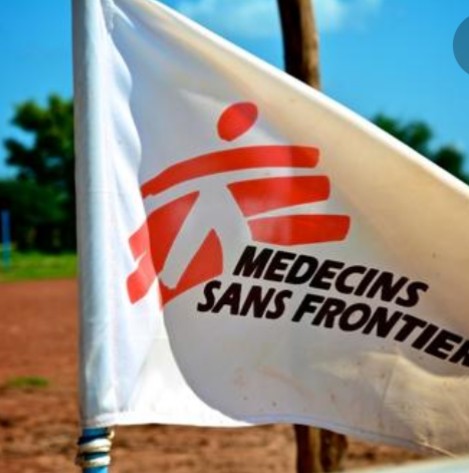|
Getting your Trinity Audio player ready...
|
Médecins Sans Frontières (MSF)
The now 44-year-old Zibusiso Ndlovu was only 19 when he came to Tshebetshebe, Gwanda in 2001 to explore the ‘golden’ opportunities offered in the gold mining sector in Zimbabwe. He was full of hope at a time when Zimbabwe was experiencing serious economic challenges that led to high inflation and job losses.
With the fear of losing his job and the little income he was getting at the end of each month weighing heavily on him, Zibusiso decided to leave his general hand job at one of the foreign-owned commercial gold mines in Gwanda. He became one among thousands of people who had joined the gold mining rush at small-scale artisanal mining sites across the country as the deteriorating economic situation continued to affect the population.
But life has not been as kind as he hoped it would be. After 20 years now, Zibusiso is still here. The promises of gold have faded, but his determination remains.
“There is not so much change”, Zibusiso recounts. “Life is not as good as people think it is for miners. We go sometimes for two months without an income. To survive we must borrow from our ‘sponsors’* who will then recover their money once we realise any profits”, adds Zibusiso.
Regardless, Zibusiso continues to toil daily to meet the basic needs of his family of six children, four of them still in school and a wife he met in 2003 in Tshebetshebe, just two years after he arrived in 2001.
“On a good day, we make between 500 to 1,500 Rands. But good days are rare,” he says.
Daily, Zibusiso works long hours underground in mine shafts that are anything between 30 to 300 metres deep. He is painfully aware of the dangers – unstable shafts, toxic dust and harmful chemicals, and the ever-present risk of injury, yet, driven by the need to provide for his family, he soldiers on, armed with little more than a shovel, plastic containers, a hammer and a wheelbarrow among other basic mining equipment-no safety gear, no personal protective equipment.
This exposes him and many other small-scale artisanal miners to serious health conditions such as respiratory issues, silicosis, tuberculosis and physical injuries.
“It’s dangerous, I know, but these are the sacrifices we make for our loved ones,” says Zibusiso. “My family comes first. I make sure that I support them with the proceeds I get from mining. This means that things such as protective clothing and proper mining equipment are not a huge priority for me.”
Zibusiso’s family lives about five kilometres from the mine. They visit every two to three weeks to check up on him and collect money for the family’s basic needs. Sadly, Zibusiso’s eldest daughter was home when we met him as he had yet to pay school fees for her and three other siblings two weeks after schools had opened.
“As you can see, she is still home because I haven’t been able to raise school fees yet, but I hope that I will get something so I can pay the school.”
While the economic situation has not changed much for Zibusiso, he has found a ray of hope on the healthcare side. In the past, he and his colleagues could not even afford to take time off work to seek treatment, often enduring severe symptoms silently.
But now things have improved due to a Médecins Sans Frontières (MSF) comprehensive health outreach programme as artisanal miners and the host community can now access healthcare services.
The outreach programme aims to bridge the health services gap and bring essential healthcare services directly to the miners’ doorsteps. Through the Artisanal Small-Scale Gold Mining Basic Healthcare project (ASGM-BHC), MSF works hand in hand with the Ministry of Health and Child Care to deliver free, accessible care to over 30 mining sites in Gwanda district.
The project offers screenings, treatment for common illnesses, mental health support, and health education, all while working closely with the Ministry of Health and Child Care to improve service delivery for hard-to-reach communities.
“We used to walk long distances of up to 5km to the nearest clinic. Sometimes we would commute to Gwanda which is about 20km away to receive treatment. Besides paying for treatment, getting the service itself was hard because sometimes medication was not available regardless of time spent in queues and travel time.
“We would only seek treatment when one’s health condition deteriorated because we did not always have the money and time to do so. Our work demands that we work every day, this is how one gets more money and in the spirit of teamwork you cannot be away from work,” Zibusiso says.
“For the first time in 24 years of my experience as an artisanal miner, I had never experienced this. We are getting treatment for almost everything here, where we work. We are now receiving treatment for most of the conditions here at the mine. TB, HIV and STIs are very common conditions affecting miners,” Zibusiso says.
Artisanal miners like Zibusiso are often criminalised or forgotten, operating in informal spaces where survival is the only constant but he is grateful to MSF for giving him and his fellow miners a healthy lifeline to enable them to at least work for the betterment of their families with less worry on their health needs and that of their families.
*Sponsors for gold mining, are individuals who typically provide funding, equipment, food and other necessities to a group of artisanal miners. In exchange, the small-scale artisanal miners (also known as othseketstha in Ndebele), pay some proceeds from the sale of gold and give a certain percentage to these sponsors for their support.






